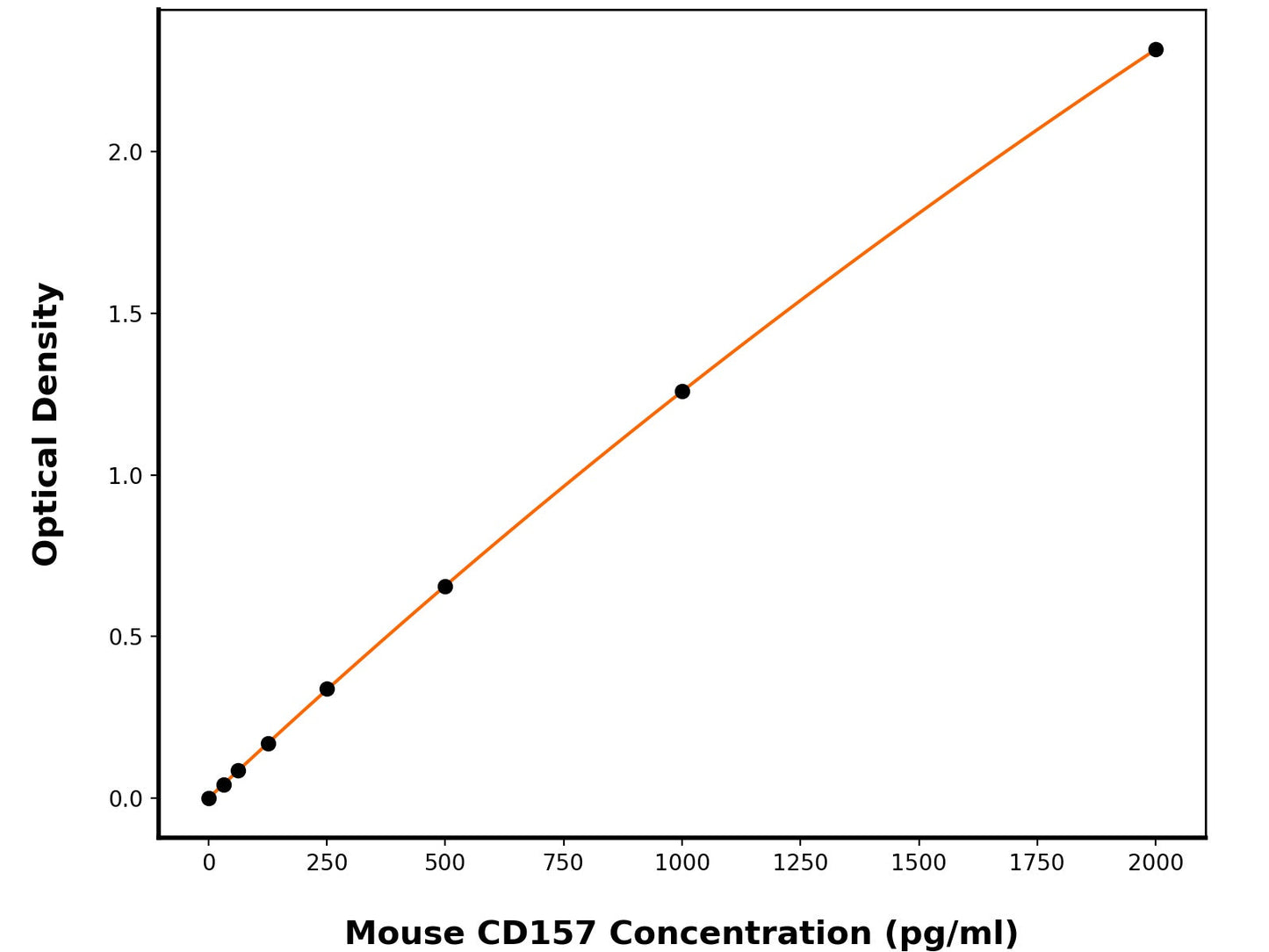1
/
of
1
Mouse Bone marrow stromal antigen 1 (BST1) ELISA Kit
Mouse Bone marrow stromal antigen 1 (BST1) ELISA Kit
This ELISA kit is designed to detect Mouse Bone marrow stromal antigen 1 (Mouse BST1). The assay plate has been pre-coated with mouse anti-Mouse CD157 monoclonal antibody. When the sample containing CD157 is added to the plate, it binds to the antibodies coated on the wells. Then, a horseradish peroxidase conjugated mouse anti-Mouse CD157 Antibody is added to the wells and binds to CD157 in the sample. After washing the wells, substrate solutions are added, and the color intensity is directly proportional to the amount of Mouse CD157 present. The reaction is stopped by adding an acidic stop solution, and the absorbance is measured at 450 nm.
Catalog No:
BPE307
Regular price
$754.00 USD
Regular price
$580.00 USD
Sale price
$754.00 USD
Unit price
/
per
2 weeks
Couldn't load pickup availability
Product Details
Species Reactivity
Mouse
Sensitivity
8.49 pg/mL
Detection Range
31.25-2000 pg/mL
Sample Type
Serum, plasma, cell culture supernates
Incubation(s)
3.5 hour(s)
Research Areas
Immunology, Signal Transduction
Background
The cluster of differentiation (CD) system is commonly used as cell markers in immunophenotyping. Different kinds of cells in the immune system can be identified through the surface CD molecules associating with the immune function of the cell. There are more than 320 CD unique clusters and subclusters have been identified. Some of the CD molecules serve as receptors or ligands important to the cell through initiating a signal cascade which then alter the behavior of the cell. Some CD proteins do not take part in cell signal process but have other functions such as cell adhesion. CD157, also known as ADP-ribosyl cyclase 2, is an ectoenzyme sharing several characteristics with ADP-ribosyl cyclase CD38. CD157 was originally identified as a bone marrow stromal cell molecule (BST-1) with a glycosylphosphatidylinositol (GPI) anchor to bind to the cell surface. CD157 is prevalently expressed by cells of the myeloid lineage. CD157 could act as a receptor with signal transduction capability. Further, it regulates calcium homeostasis and promotes polarization in neutrophils and mediates superoxide (O2−) production in the human U937 myeloid line.
Shipping Condition
Shipped on cold gel packs.
Storage Condition and Shelf Life
This product can be stored at 2-8C.
Analyte
ADP-ribosyl cyclase/cyclic ADP-ribose hydrolase 2
Regulatory Status
For Research Use Only

